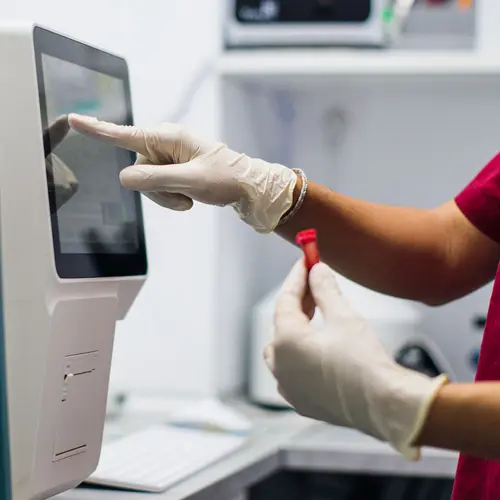March 24, 2025 – The FDA has approved a new Crohn’s disease treatment called guselkumab, which, unlike similar drugs, can be given via self-injection by patients at home, provided their doctor is OK with it.
The treatment is approved for people with moderate to severe forms of Crohn’s, a type of inflammatory bowel disease (IBD) that causes intestinal inflammation and affects about 3 million people in the United States. Symptoms include stomach pain, diarrhea, blood in the stool, weight loss, and fever.
Sold under the brand name Tremfya, the treatment can also be given as an intravenous (IV) infusion by a health care provider. Clinical trials showed "robust" remission rates with both treatment plans, one of the trial’s lead investigators – Remo Panaccione, MD – said in a news release from Johnson & Johnson, the drug’s maker.
Known as an IL-23 drug, guselkumab reduces inflammation by blocking interleukin-23 (IL-23), an inflammatory protein that plays a big role in the development of Crohn’s and is a crucial target for therapies managing the disease. Tremfya is the first that also binds to CD64+ cells, providing more effective relief, the release says.
While other IL-23 therapies are available for Crohn’s, they must be given via IV infusion at a brick-and-mortar clinic. Tremfya is available as a prefilled pen injector, which patients or caregivers can learn to use.
"The fully subcutaneous regimen offers choice and flexibility for patients and providers that have not been available before," said Panaccione, who is director of the Inflammatory Bowel Disease Unit at the University of Calgary.
This marks Tremfya’s fourth approval since 2017, when it received the nod for treating plaque psoriasis. The antibody was also approved for psoriatic arthritis in July 2020 and for ulcerative colitis (another type of IBD) in September.
The approval is based on clinical trials involving more than 1,300 people with Crohn’s disease who didn’t respond to or couldn’t tolerate standard treatments. At week 12, up to 56% of them on Tremfya achieved remission, compared with 22% on a placebo. By week 48, remission rates were 65% with Tremfya and 17% with a placebo.
The most common side effects include reactions where the needle went in, airway infections (bronchitis), headaches, joint pain, diarrhea, stomach flu (gastroenteritis), fungal skin infections, herpes simplex infections, and stomach pain.
Serious side effects can include allergic reactions, infections, and liver problems. Patients are advised to tell their doctor if they have liver disease, signs of an infection, or a history of tuberculosis, as the drug can weaken the immune system and may increase the risk of developing new or reactivating old infections.
